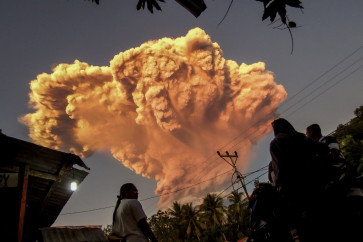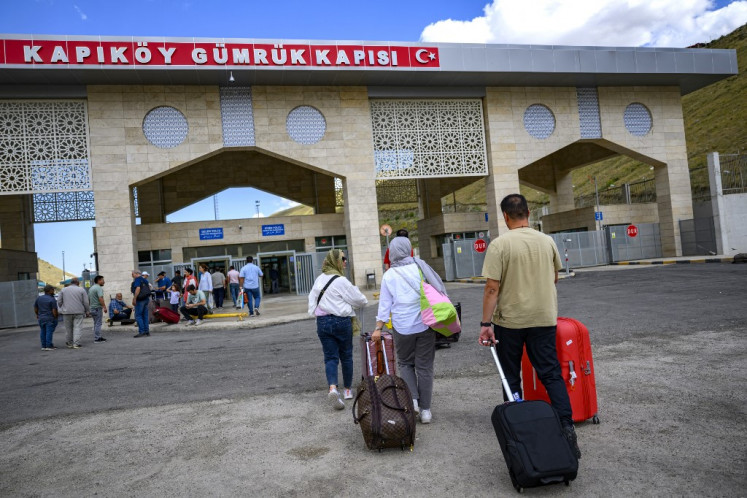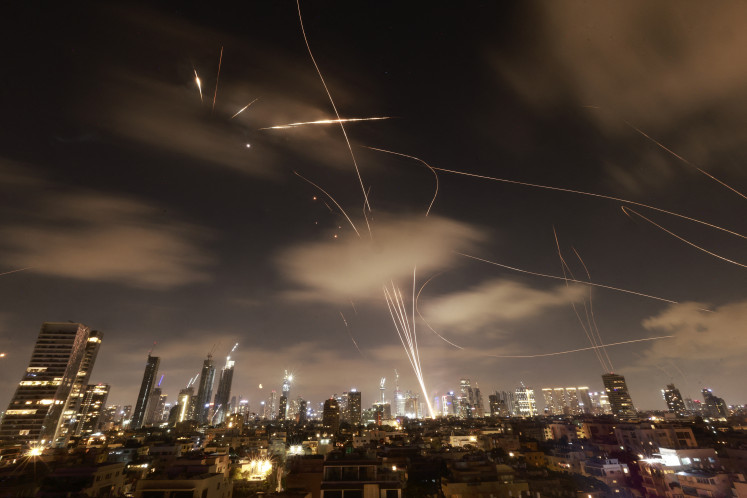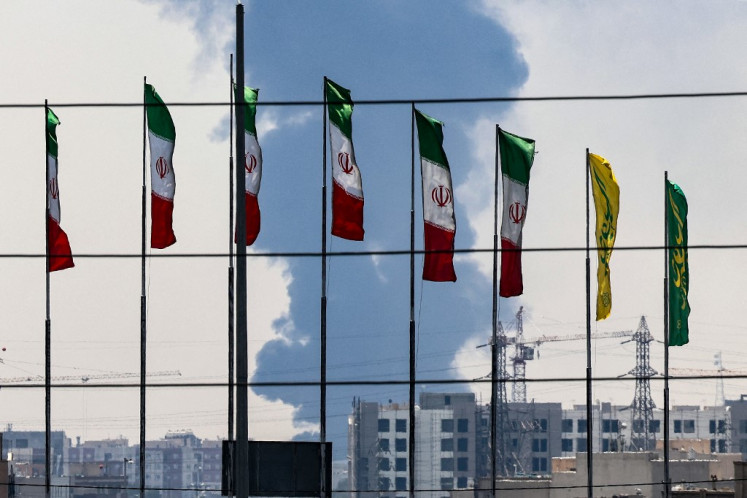Popular Reads
Top Results
Can't find what you're looking for?
View all search resultsPopular Reads
Top Results
Can't find what you're looking for?
View all search resultsView Point: Street injustice: Rev up your fat motorbike and get preferential treatment
The recent minor incident in Yogyakarta in which Elanto Wijoyono, a brave cycling campaigner, risked life and limb by blocking a police-escorted Harley Davidson convoy is a timely reminder that there is something very wrong with our âroad mannersâ, traffic regulations and street justice
Change text size
Gift Premium Articles
to Anyone

The recent minor incident in Yogyakarta in which Elanto Wijoyono, a brave cycling campaigner, risked life and limb by blocking a police-escorted Harley Davidson convoy is a timely reminder that there is something very wrong with our 'road manners', traffic regulations and street justice.
The issue may have died down had the incident not involved a Harley parade and the police who provided an escort. Apparently, the incident was only the culmination of a popular loathing of big motorbike convoys that often aggravate traffic, especially in major cities like Yogyakarta and elsewhere.
On the streets, riders of these expensive motorbikes ' Harley Davidsons are but one type ' often display arrogance. With police escorts, they often speed by with their intimidating sirens wailing out loud and lamps flashing in the daylight, running red lights and cursing at motorists who won't let them past.
In a show of preferential treatment, big bike motorcades can enjoy the freedom of speeding on the toll road ' a privilege that riders of regular motorbikes can only envy ' as often seen on Jagorawi, a toll road connecting Jakarta and the Puncak hill resort.
Big motorbike gangs have become a symbol of social injustice on the move. It is an open secret that many owners of these expensive bikes are powerful people in law enforcement institutions ' incumbent or retired ' grouped in various clubs.
No wonder when they hit the street in large convoys they can enjoy the liberty to unleash their adrenaline anywhere without fear of being ticketed ' and with the luxury of police escorts if they wish.
Road accidents involving fat motorbikes may have been caused by the riders' poor street behavior. In April, two road accidents involving a Harley Davidson motorcade on the way to Pangandaran Beach in West Java to celebrate The Ninth Memorial Wingday claimed the lives of two motorcyclists in Tasikmalaya and Ciamis.
On Aug. 15, a car driver filed criminal charges with the Yogyakarta police against the big bike rider who allegedly assaulted him during an argument after the two were involved in a minor accident.
This is not to say that riders of smaller motorbikes are more civilized in the street than those of Harleys. The so called 'motorbike gangs' are probably just as terrible. Infamous motorbike gangs have become part of our urban woes. Some of them have committed horrible street crimes, such as robbery, assault and even murder.
Owners of smaller motorcycles also have make-based clubs and they often hold their own motorcades, especially on the weekends. The most conspicuous difference is that they do not usually enjoy the same police motorcade as their big-bike counterparts.
It is the obvious preferential treatment that police give to the powerful and the wealthy that underlies the ongoing lively debate provoked by the Yogyakarta incident. The special treatment seems to indicate the police slogan 'To protect and to serve' applies only to the rich and the powerful.
Ironically, the police response to the Yogyakarta incident has raised more questions than answers regarding the enforcement of Law No. 22/2009 on traffic and land transportation.
At the eye of the storm is Article 134 of the law, which regulates which vehicles should be given such priority in the road as meriting a police escort. It specifically mentions fire trucks, ambulances, vehicles intending to assist at a traffic accident, vehicles of state officials and foreign guests, vehicles escorting the transportation of human remains or others worthy of a police escort for 'special reasons'.
National Police chief Badrodin Haiti argued that the motorcade in Yogyakarta broke no laws because the participants who streamed to the ancient city had secured the necessary permit from the police, and thus were granted the escort.
Even supposing the organizers had the requested permit that should not have been reason enough for the police to allow the bikers to violate traffic rules along the way. Besides, the motorcade did not qualify for priority treatment as stipulated in the law.
The hobbyists were on their way to an event called the 'Jogja Bike Rendezvous' so what was the urgency for the police to grant them privileges overriding those of the general public? They were not rushing to defuse a bomb or carrying a woman about to give birth to a maternity hospital.
National Police spokesman Brig. Gen. Agus Rianto told the Post that every citizen could request an escort from the police because there were no laws that specifically regulated who was entitled to a police escort and so providing an escort was at the police's discretion. But what about Article 134 of the traffic and transportation law?
The Yogyakarta incident calls for lawmakers to review this police prerogative called 'discretion' because if not wisely used, the power is extremely prone to abuse by dishonest individuals for questionable purposes and personal gain.
Thank Elanto for drawing attention to this crucial issue that has long slipped from our mind amid the roar of the never-ending convoy of our other problems.
____________________________
The author is a staff writer at The Jakarta Post.









